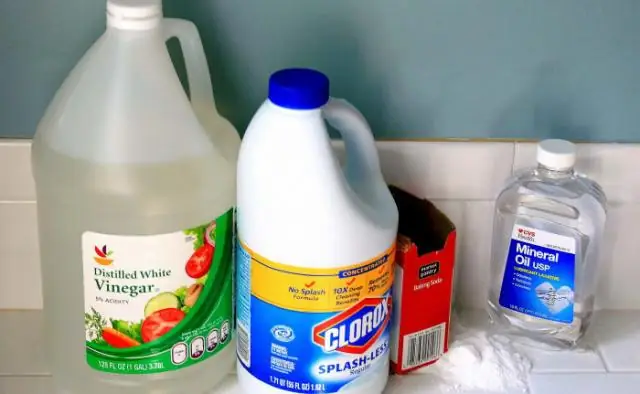
Table of contents:
- There will be no trace of the smell of sewage in an apartment and a private house
- What causes an unpleasant smell of sewage in living quarters
- How to eliminate the cause of the bad smell
- How to remove sewer odor from your hands
- Preventive measures: what to do to prevent the smell from appearing again
- Author Bailey Albertson [email protected].
- Public 2023-12-17 12:53.
- Last modified 2025-01-23 12:41.
There will be no trace of the smell of sewage in an apartment and a private house

The comfort of our home largely depends on the smells in it. And if they are unpleasant, we feel uncomfortable. Most of these can be removed by flushing surfaces, ventilating rooms, doing laundry, or spraying an air freshener. But there is a smell, which is not so easy to deal with. Its source is sewers. If you live in an apartment or in a private house, you will have to get down to business as soon as possible as soon as this nuisance manifests itself.
Content
-
1 Because of what there is an unpleasant smell of sewage in living quarters
- 1.1 Damage to the common house sewage system
- 1.2 Damage to the wiring in an apartment or private house
- 1.3 Video: possible reasons for the spread of the smell of sewage in rooms
-
2 How to eliminate the cause of the unpleasant odor
- 2.1 Implicit leaks
- 2.2 Replacing the sewer pipes
-
2.3 Restoration of water seals
2.3.1 Video: how to make a vacuum valve in a sewer pipe
-
2.4 Removing blockages
2.4.1 Video: how to dissolve a blockage with soda and vinegar
- 2.5 Eliminating odors from the washing machine
- 2.6 Problems with ventilation
- 3 How to remove the smell of sewage from hands
- 4 Preventive measures: what to do to prevent the smell from appearing again
What causes an unpleasant smell of sewage in living quarters
If you find a specific smell in your home, first find out the cause. This will save a lot of time and help you solve the problem effectively.
Damage to the general sewage system
If your apartment is on one of the lower floors, and the stench is felt even in the entrance, you will have to look for the problem in the wiring located in the basement. There is a high probability of mechanical damage to the sewer pipe. Drains flow out of the hole, flooding the floor and exuding a stench.
A common cause of odor formation is common blockage. There are certain rules for using the sewer, but some people ignore them, pouring solid waste into the toilet and sink. The pipes become clogged, the waste stuck in them begins to rot quickly. This can happen anywhere on the wire. Any trouble with the basement sewer system will result not only in the appearance of a smell, but also in dampness, mold, fungus and even destruction of the structure of the house. If you find malfunctions in the basement, apply to the management company that serves the house. Experts will eliminate the accident, after which you need to ventilate and dry the basement.

Mechanical damage to the general house drainage system in the basement is one of the causes of an unpleasant odor in the house
Damage to the wiring in an apartment or private house
Pay attention to which plumbing fixtures are smelling. This will make you more likely to locate the breakdown in the living area.
-
Implicit leaks (cracks, fistulas) are formed in cast iron pipes. Most often they are mounted inside a wall or floor, so it is difficult to establish a place with a damaged area. Similar damage is possible on plastic pipes.

Damaged sewer pipe Cracks in pipes are the most common cause of bad odor
- If you find a sewage smell in the kitchen or bathroom, inspect the areas with plumbing connections: sinks, sinks, toilet bowl, etc. Most likely, these joints are not tight.
-
Check the siphons. There must be water in the knee of this device to provide a water seal. Prolonged non-use of the siphon leads to drying out of moisture.

Water trap in the pipe There must be water in the elbow of the pipe or siphon, which will provide a water seal
- Odor can occur due to ventilation problems. Blocking the fan pipe interferes with the operation of the water locks. When you flush the toilet or flush a large amount of water in another way, a vacuum occurs in the system. This causes water to leave the siphons, which means that unpleasant odors will freely penetrate into the room.
-
The usual clogging of the siphons causes trouble. Soap, food residues, grease - all this accumulates on the inner surface of the knee of the device, decomposing and exuding odors over time.

Siphon Siphon blockages are also often the cause of unpleasant odors.
Video: possible reasons for the spread of the smell of sewage in rooms
How to eliminate the cause of the bad smell
For any damage, its own repair methods are provided.
Implicit leaks
The most common cause of odor formation is a pipe leak and a loose connection. Obvious signs of this may not be seen, since sewer pipes are often hidden in walls or floors. The matter becomes more complicated if the leak is formed in the area mounted in the floor. To fix the problem, seal the hole or replace the pipe. The second option is not always possible, and even unnecessary if you find that the cause of the leak is a small fistula or crack.

You can easily repair a crack in a pipe that has formed in an accessible place with your own hands.
Such defects can be temporarily sealed.
- Place a short wooden cone in the hole and hammer in firmly.
- Wrap a gauze or bandage around the damaged area in several layers and saturate them with epoxy.
- Wrap the fistula and areas next to it with a wide rubber tape, pulling it well. Wire tightly in several turns.
- Cover the hole with a solution of water and cement without sand.
A crack in the pipe can even form due to material defects. If it is not through, but superficial, carefully expand it, clean it, degrease it with alcohol or acetone, wait until it dries and fill it with a sealant intended for sewer pipes.
It is recommended to use a neutral sealant as cheaper acid-based alternatives can negatively affect some materials.
The through crack must be repaired with "cold welding", after having also cleaned and degreased.
If you find that moisture has started to seep at the joints of the parts, a relatively new material will help you to cope with the problem the fastest - polyethylene sealing tape.
- Thoroughly wash off all dirt from the pipe surface at the joint, degrease and dry.
- Wrap the tape around the seam and adjacent areas, pulling it tighter and evener to avoid wrinkling. Each new turn should overlap the previous one by exactly half the width.
-
When you pass a section with a joint in one direction, move in the opposite direction. The tape should be laid in 2 layers.

Pipe with sealing tape Wrap the sealing tape over the damaged pipe in two layers
- If the damaged joint is outdoors, cover the area with the tape with a cover to protect it from sunlight.
Replacement of sewer pipes
If the problem is more complex than a small crack and its solution requires replacement of pipes, specialist assistance will be required. But following some recommendations will help to avoid the appearance of leaks in the future.
- Do not skimp on materials, buy high-quality sewer pipes and fittings from modern reliable materials.
- Try to install the pipeline so that it has as few joints as possible. They are the ones most vulnerable to leakage.
-
When assembling the sewer line in the bathroom, make sure that the connection points remain accessible. Otherwise, you will subsequently have to sweat a lot to get to the damaged area.

Installation of sewer pipes Try to place the sewer pipes so that access to them is not difficult
- Do not forget about high-quality waterproofing of surfaces in those rooms where the sewer pipe is located.
Restoration of water seals
Any plumbing device has a siphon, in the elbow of which water collects, providing a water seal plug and blocking the path of all odors from the sewer. The water seal can malfunction for a number of reasons.
- An increase in pressure in the sewer system can occur suddenly in the form of a volley and liquid splashes out of the drain hole. Worse, if the breakdown is weak: after it, the smell comes gradually, almost imperceptibly, coming to the surface in the form of small bubbles.
-
At times, drains completely fill the pipe, creating a vacuum in the system. For this reason, water is drawn from the siphon like a pump. The very first discharge of water completely removes the water blockage, leaving the path for the smell open.

Correct and broken water seal in the pipe Lack of water in the pipe elbow opens the way for unpleasant odors
There are also several errors that subsequently lead to filling the pipe section with drains.
- During the installation of the sewer system, pipes with a cross section that did not comply with building codes were used.
-
When installing or changing the sewer system, the obligatory pipe slope of 2 cm per meter was not observed.

Correct and incorrect pipe slope If the slope is incorrect, the pipe will eventually be filled with drains
- Pipes with the appropriate cross-sectional area during operation were iced up or covered with a coating of dirt from the inside, which led to a decrease in the clearance for water passage.
In the first two cases, you will have to change the pipes and reinstall the system, taking into account building codes. And to expand the lumen of the pipes, you need to either clean them, or spill them with hot water in case of icing. If the smell comes from the shower, the cause may be a corrugated drain pipe, or rather, the absence of a knee on it. A water seal does not form in the direct drain. In this case, you need to bend the corrugated pipe at the knee and fix it.
Video: how to make a vacuum valve in a sewer pipe
Clearing blockages
Unpleasant odors are often caused by a blockage in the pipe. There are several ways to get rid of it:
-
If the blockage is not very large, push it with a plunger. Due to the resulting pressure difference, trapped dirt will quickly leave the pipe.

The plunger in the sink Small blockages can be easily removed with a plunger
-
Another effective tool for removing blockages in pipes is a cable with a swing handle. It is fed into the sewer with rotational movements, due to which it passes all the turns and knees.

Plumbing cable A special plumbing cable can easily deal with a blockage in the pipe
-
Particularly resistant blockages will have to be dealt with with household chemicals. Popular pipe cleaners that can attack dirt plugs (Mole, Tiret, and others) can be purchased at any hardware store. The substance is poured or poured into the drain hole for a while according to the instructions, after which it is washed out with running water.

Cleaning agents for blockages in pipes Special chemicals will help you quickly get rid of blockages in pipes
- If a blockage has formed in the kitchen sink, then its cause is fat accumulated on the pipe walls. It can be removed by pouring a bucket of very hot water (at least 60 ° C) with a diluted soda bag into the drain.
Video: how to dissolve a blockage with soda and vinegar
Removing odors from the washing machine
If you checked the piping, water seals and found no problems, but an unpleasant smell still spreads through the bathroom, most likely it comes from the washing machine. And the cause of its occurrence can be:
-
Fungus and mildew on the detergent drawer, rubber band and other parts. They usually appear with constant use of a low temperature wash cycle. All contaminated parts must be thoroughly washed. For prevention purposes, wash at the maximum temperature without clothes at least once every 2 months.

Cleaning the washing machine Thoroughly wash parts of the washing machine where mold and mildew can form and cause odor
- Rotting debris trapped in the drain hose or filter of the drain pump. A complete cleaning of these parts will help to cope with the problem.
Ventilation problems
Sometimes an unpleasant odor persists in rooms due to poor ventilation. Checking its effectiveness is elementary: just attach a piece of paper to the ventilation grill. With good traction, the paper seems to stick to the grate, held by the air flow.

To check if the ventilation is working, see how the air flow keeps the sheet of paper on the grate
Due to the lack of ventilation, fungus and mold appear on the walls, which form a persistent odor. So you need to eliminate the problem as soon as possible.
- Provide forced ventilation. An ordinary household fan directed into the existing duct is sufficient for this.
- If the previous method did not help, call specialists from the management company or the housing office. They will clear blockages in the ventilation ducts.
How to remove sewer odor from your hands
After eliminating breakdowns in the sewer network or plumbing, you may encounter another problem: the smell remains on your hands and does not give rest. Even working with rubber gloves does not guarantee the absence of such a nuisance. And it seems like you wash, wash your hands with scented soap, but there's no use. Try one of the following methods.
- Alcohol is a disinfectant and will help you quickly wipe away sewer odors from your hands. If not, wipe your skin with vodka, cologne, or another alcohol-based liquid.
- Rub a few sprigs of parsley in your hands. Its essential oils have a strong fragrance and durability.
- Food acids are also great at eliminating odors. Wipe your hands with a slice of fresh lemon or cotton swab dipped liberally in table vinegar or any other vinegar.
After any of these methods, wash your hands under running water and brush with a soft cream (it's just great if it has a citrus smell - this way the effect will be achieved faster).

Even rubber gloves do not always save your hands from unpleasant sewer odor.
Preventive measures: what to do to prevent the smell from appearing again
Over time, the drain may clog up again and begin to exude a stench. To avoid this, take the following methods as a rule:
- every 2 weeks pour 5-10 liters of hot water with any detergent into the drain;
- disassemble and clean the siphon once a month;
- clean the pipes every 6 months with caustic soda or a special cleaner.
Do not forget about these measures, and unpleasant smells from the sewer will never bother you again.
There can be many reasons for the smell of sewage in your home. But with most of them, you can cope on your own and at no special cost, timely detecting a malfunction. We hope the tips will help you to carry out all the work correctly. In the comments, you can share with us your ways to eliminate unpleasant sewage odors in an apartment or a private house.
Recommended:
How To Get Rid Of Wood Lice In A House, Bathroom Or Other Rooms Of An Apartment - Various Methods Of Struggle, Including Folk Remedies
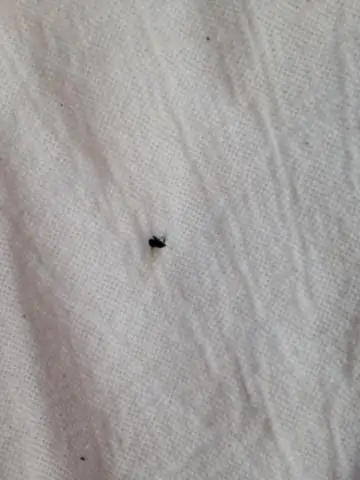
How to get rid of wood lice that have chosen your apartment with the help of folk recipes and industrial means. Ways to prevent them from reoccurring
How To Get Rid Of An Unpleasant Smell In A Washing Machine: We Remove Odors Of Mold, Gasoline And The Like + Photos And Videos
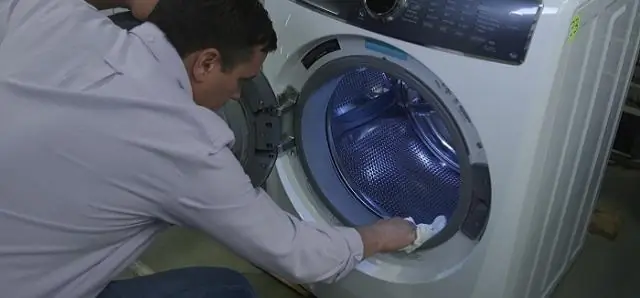
Why unpleasant odors appear in the washing machine and how to get rid of them. In what cases can you fix the problem without calling the wizard
How To Get Rid Of Spiders In A Private House, Apartment, Balcony, Windows And Other Places Forever, Tips With Photos And Videos

How to get rid of spiders in a house or apartment. Should you be afraid of them? How to remove spiders: effective chemicals and folk remedies
How To Get Rid Of Humidity And Dampness In An Apartment Or House, As Well As From The Accompanying Smell, How To Eliminate It And Useful Tips
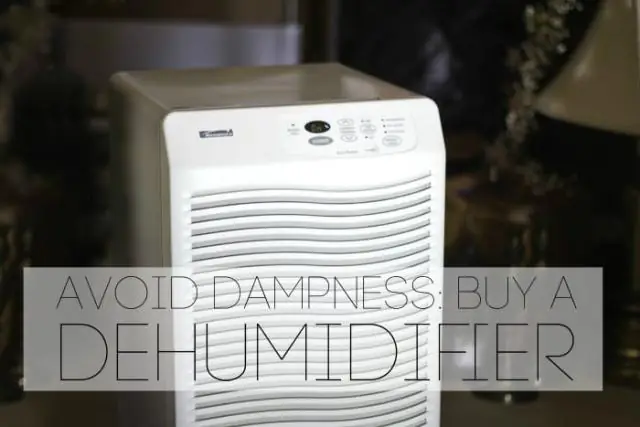
Dampness and fungus in an apartment and a private house. The reasons for the appearance of excessive moisture, condensation, mold and how to eliminate them. Preventive measures. Instructions
How To Get Rid Of The Smell Of Cat Urine On The Carpet At Home, How To Remove Stains, Remove Traces Of Marks, Remove Unpleasant Odors
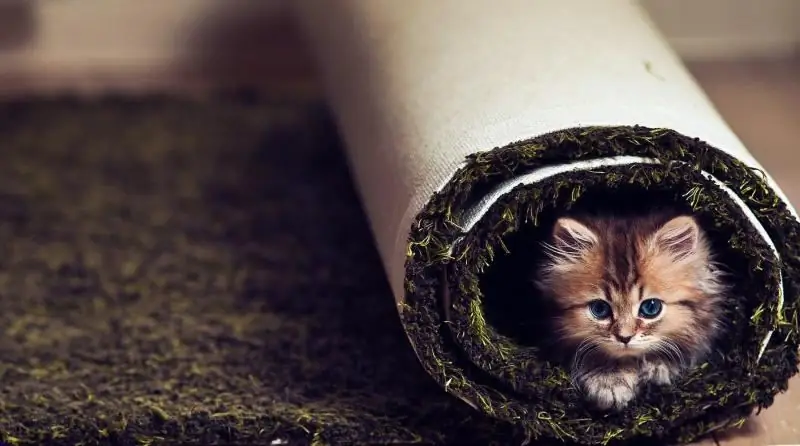
Why cat urine smells harsh What to do if the cat wrote on the carpet. How to find and remove old stains. Folk and commercial odor removers
